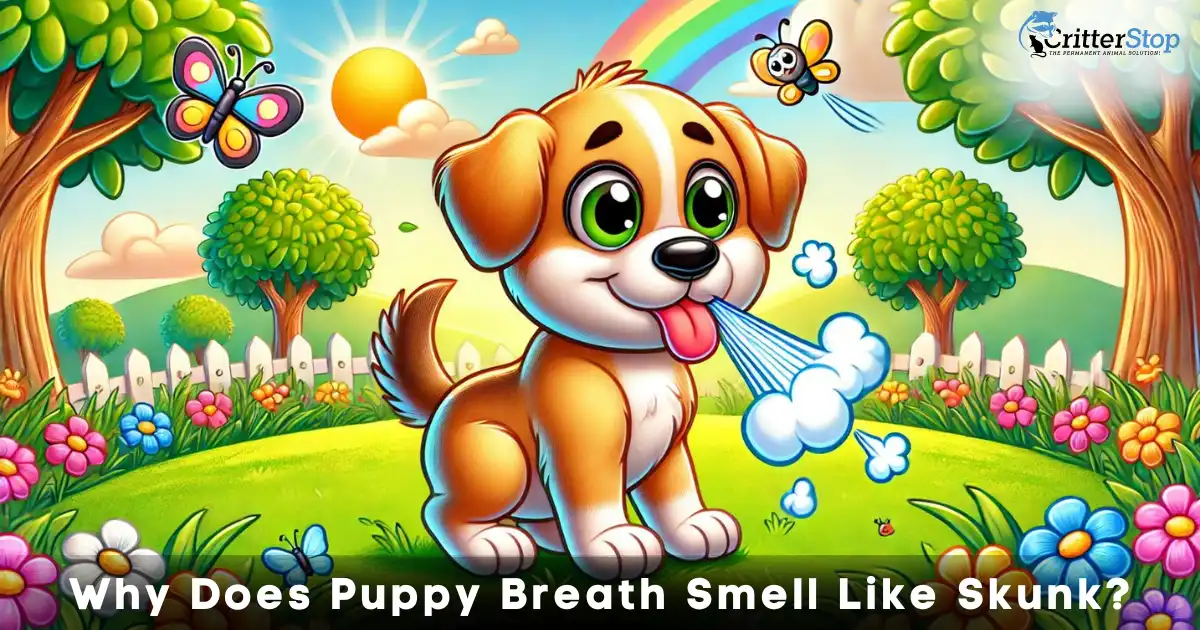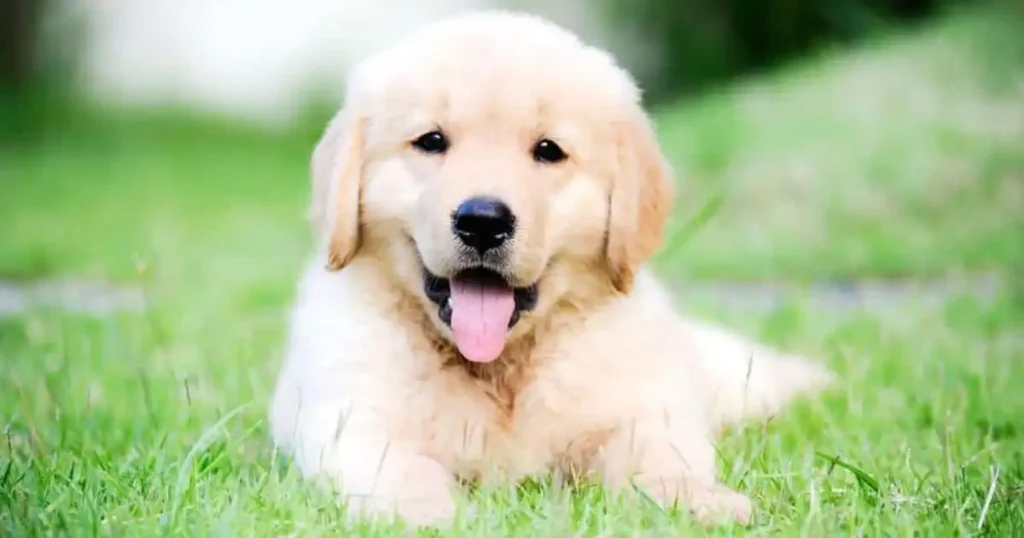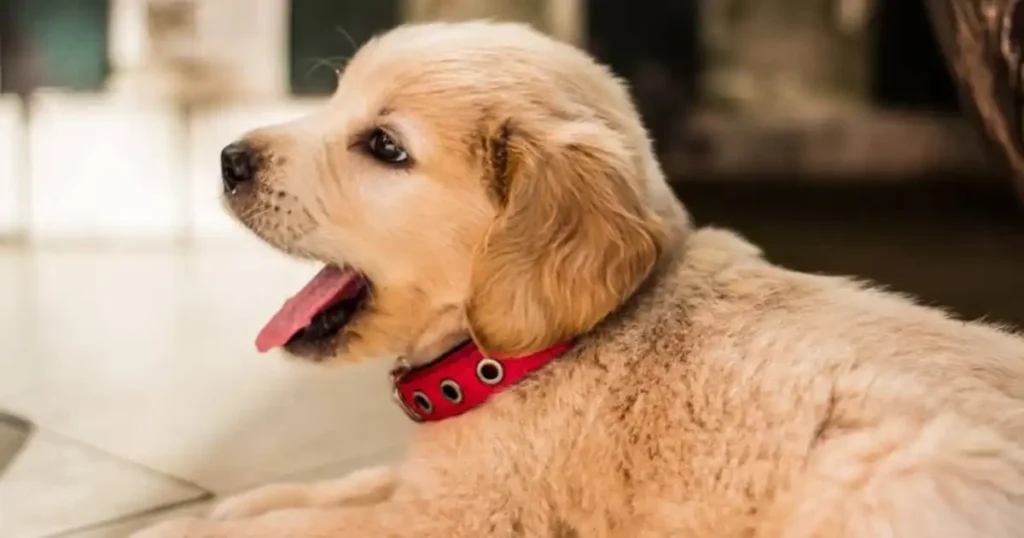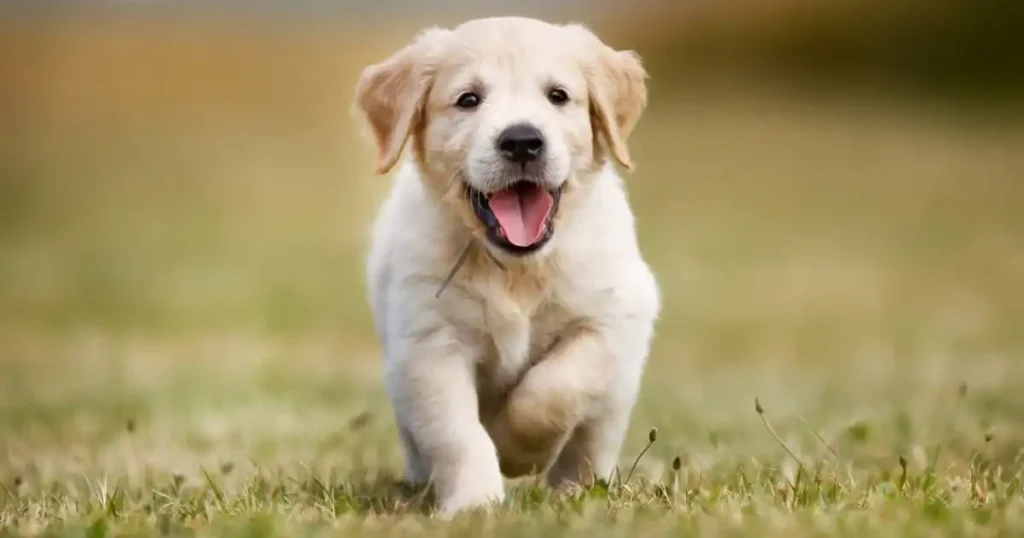
Puppy breath is often considered an adorable and endearing trait of young dogs. However, some pet owners notice that their puppy’s breath carries a particularly pungent odor, reminiscent of a skunk. This unexpected and unpleasant scent can be disconcerting.
It's important to remember that while the distinct puppy breath aroma is typically short-lived, any deviation from the usual sweet or milky scent can indicate an underlying issue. Factors such as dietary indiscretions, poor oral hygiene, gastrointestinal troubles, respiratory infections, metabolic disorders, and even certain environmental influences can contribute to the skunk-like odor. By identifying and understanding these potential causes, you can take the necessary steps to ensure your puppy's health and well-being, ultimately maintaining that cherished bond between you and your furry friend.
In this article, we explore the reasons behind this phenomenon and provide detailed insights into what might be causing your puppy’s breath to smell like a skunk.

Puppy breath is a term used to describe the unique scent of a young puppy’s breath. This smell is usually pleasant and is often attributed to a combination of milk, puppy formula, and the natural sweetness of a young dog’s digestive system. However, when this scent turns foul and skunk-like, it’s essential to investigate the underlying causes.
Many pet owners find themselves asking, "Why does my puppies breath smell like skunk?" If your puppy's breath smells like skunk, it could be due to a variety of reasons, ranging from diet to health issues. Identifying and addressing the root cause is crucial for maintaining your puppy's overall health and keeping that beloved puppy breath fresh and pleasant.
One of the primary reasons for a skunk-like smell in a puppy’s breath is related to diet and digestion. Puppies often explore their environment with their mouths, ingesting a variety of substances that can lead to digestive issues. Certain foods, especially those high in sulfur compounds, can produce foul-smelling gases that are exhaled through the breath.
Common dietary culprits include:
Poor oral hygiene is another significant factor contributing to foul-smelling puppy breath. Just like in humans, the buildup of bacteria in a puppy’s mouth can lead to halitosis.
Key points to consider include:
Gastrointestinal issues can also result in a skunky breath odor. If your puppy has underlying digestive problems, such as gastritis, gastroenteritis, or intestinal blockages, these can cause foul-smelling breath.
Symptoms to watch for include:
Respiratory infections are another potential cause of bad breath in puppies. Infections in the sinuses, throat, or lungs can lead to the production of foul-smelling mucus, which is then exhaled through the breath.
Common respiratory issues include:
Certain metabolic disorders can also result in skunky breath. Conditions such as diabetes mellitus, kidney disease, and liver disease can alter the normal scent of a puppy’s breath.
Indicators of metabolic disorders include:
Infections and abscesses in the mouth or throat can lead to a significant odor. These infections can be caused by bacteria, viruses, or fungi, and may result from injuries or other health issues.
Symptoms to be aware of include:

Maintaining good oral hygiene is crucial in preventing bad breath. Regular brushing of your puppy’s teeth, using veterinary-approved toothpaste, can help reduce plaque and tartar buildup. Providing dental chews and regular professional cleanings can also be beneficial.
Feeding your puppy a balanced, nutritious diet that is appropriate for their age and size can help prevent digestive issues. Avoid feeding your puppy table scraps or foods known to cause bad breath.
Regular visits to the veterinarian can help identify and address any underlying health issues that may be causing bad breath. Early detection and treatment of dental problems, gastrointestinal issues, and infections are essential for maintaining your puppy’s overall health.
If your puppy has a known metabolic disorder, it’s important to follow your veterinarian’s recommendations for managing the condition. Proper treatment and monitoring can help reduce the risk of bad breath.
Keeping a close eye on what your puppy is chewing or ingesting can prevent them from consuming harmful substances that could lead to bad breath. Puppy-proofing your home and providing safe chew toys can help in this regard.

If your puppy’s breath smells like a skunk and does not improve with proper hygiene and diet, it’s important to seek veterinary attention. Persistent bad breath can be a sign of a serious underlying health issue that requires professional diagnosis and treatment.
Contact your veterinarian if you notice:
Ensuring your puppy receives prompt veterinary care can help address any health issues and improve their overall well-being.
There are several misconceptions about puppy breath that can lead to confusion among pet owners. Understanding the facts can help you better manage your puppy's health and hygiene.
While it’s true that many people find puppy breath endearing, this isn’t always the case. Just like humans, puppies can have bad breath due to various factors, including their diet, oral hygiene, and overall health.
Although occasional bad breath can be normal, persistent foul odor, especially one that smells like a skunk, is not. This can be a sign of underlying health issues that need to be addressed by a veterinarian.
Some pet owners believe that dental care is only necessary for adult dogs. However, starting dental hygiene early in your puppy’s life can prevent future dental problems and ensure they develop healthy oral habits.
While some home remedies might temporarily mask bad breath, they do not address the root cause. Professional veterinary care is essential for diagnosing and treating the underlying issues causing bad breath.

Improving your puppy’s breath involves a combination of good oral hygiene, proper diet, and regular veterinary care. Here are some steps you can take to ensure your puppy’s breath stays fresh:
Brush your puppy’s teeth regularly using a toothbrush and toothpaste specifically designed for dogs. This helps remove plaque and prevent tartar buildup, which can lead to bad breath.
Dental chews and toys are designed to help clean your puppy’s teeth as they chew. These can be an excellent addition to their dental care routine.
Feed your puppy a balanced diet that meets their nutritional needs. Avoid giving them human food or treats that can contribute to bad breath.
Ensure your puppy has access to fresh water at all times. Proper hydration is essential for maintaining overall health and can help prevent bad breath.
Schedule regular checkups with your veterinarian to monitor your puppy’s oral health and overall well-being. Early detection of health issues can prevent them from developing into more serious problems.
Keep an eye out for any signs of health issues, such as vomiting, diarrhea, lethargy, or changes in appetite. If you notice any of these symptoms, contact your veterinarian immediately.
While puppy breath is usually a delightful part of having a young dog, a skunk-like odor can be a cause for concern. By understanding the potential causes and taking steps to address them, you can ensure your puppy remains healthy and happy. Proper oral hygiene, a balanced diet, and regular veterinary care are essential in preventing and treating bad breath.
If your puppy’s breath continues to smell despite your best efforts, don’t hesitate to seek professional veterinary advice. Persistent bad breath can indicate more serious health issues that require attention.
So, if you where wondering why do puppies breath smell like skunk, you may find all the details and information in this article. By taking proactive steps and staying informed, you can keep your puppy’s breath fresh and pleasant, contributing to their overall health and well-being.
In addition to taking care of your puppy's health, it’s crucial to manage your home environment, especially when dealing with wildlife issues such as skunks.
Critter Stop is a professional humane wildlife removal company that can help you with skunk trapping needs. With a fantastic reputation and numerous positive customer reviews, Critter Stop is known for providing high-quality work and excellent customer service.
If you are experiencing issues with skunks or other wildlife, contact Critter Stop for efficient and humane removal services. Their expertise ensures that your home remains safe and critter-free.
Call us at (214) 234-2616 to get a free estimate of our services.
Visit our Critter Library and learn more about our furry friends